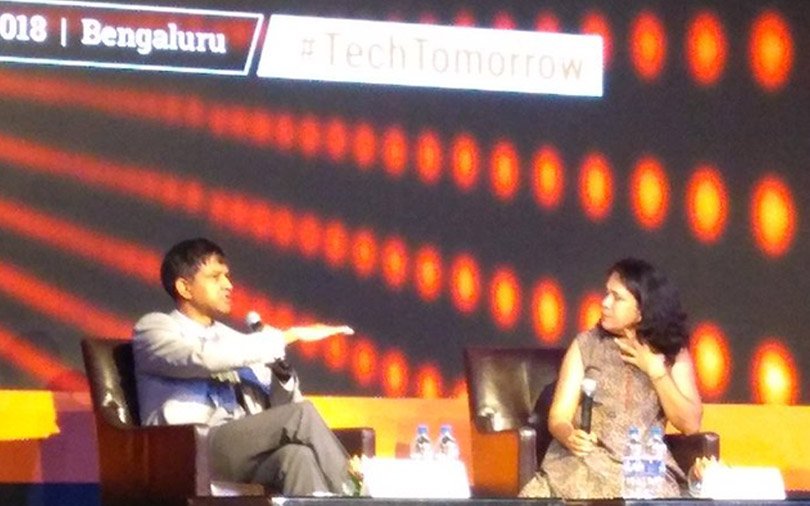
AI revolution is only just beginning: Intel's Prakash Mallya at TechCircle Live


While artificial intelligence (AI) has been present for more than half a century, the revolution is just about to begin, said Prakash Mallya, managing director, sales and marketing, Intel India at the TechCircle Summit.
The 2018 edition of TechCircleLive saw entrepreneurs and investors gather in Bengaluru to discuss how technology and the digital revolution have impacted the way businesses are run in India.
Mallya participated in a fireside chat chaired by Archna Shukla, News Corp VCCircle’s editor-in-chief, who discussed how AI is transforming businesses across the world.

The rapid decline of the cost of computing power, data and devices network has thrown open the possibility of utilising AI tools like never before, Mallya said. The confluence of these factors is the reason AI has become relevant now since its existence half a century ago, and is now beginning to impact human lives.
Mallya noted that a typical drug discovery that took several years earlier is now possible at a much shorter period of time with the help of AI through genome analysis. "In our own lifetime, we will see remote surgeries being made possible by AI. It has helped us to push the boundaries of what is possible. For instance, if we study and understand how the brain works, we can build a neural network that can mimic a human brain," he explained.
The chipmaker giant, which develops cloud-based AI tools, increasingly works with academic institutions and cloud companies like Microsoft and Amazon so that these software and tools can be utilised by several large enterprises as well as small companies and startups. This enables the potential of AI to be achieved at scale, Mallya said.

As more and more devices and sensors are deployed at factories, offices and other machines to monitor and send data, increasingly there are more machines communicating and generating data than human beings. Mallya said that if analysed and studied in a meaningful way, these data sets can increase productivity in transportation, agriculture and industrial automation.
Mallya said that while AI and automation will kill several jobs, it will also create employment. "The lack of talent is a big issue for all tech companies globally. We might not need the same kind of talent and might need to redefine it, but there will be several jobs," he added. Intel trained more than 15,000 individuals in AI through workshops, online tutorials and other programmes, he said.
While there are debates about data privacy and misuse of data, Mallya said that there was a need for balance. "The entire ecosystem has to come together and decide on what can be meaningful use of AI. We cannot run away from using newer technologies," he said.

